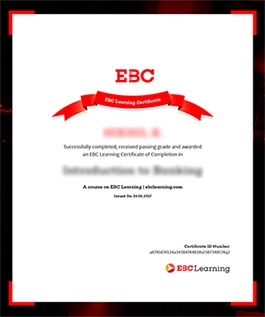Competition Law
About Course
Competition law seeks to promote competition in the market and regulate anti-completive behaviour. This new law is a departure from the earlier MRTP Act which sought to regulate corporations and monopolies rather than facilitate business activity. The Competition Act seeks to promote competition in the market. It does so, by looking at the position of the corporation in the market rather than focussing merely on its size. This new law, with its new philosophy and requirements, has a tremendous impact on business deals and arrangements. M&A activity, vertical and horizontal agreements between firms and suppliers and retailers, collaborations, and pricing agreements — all of these are impacted by the Competition Act. This makes understanding the requirements under this law crucial for any corporate law practitioner. In this course, we take you over these requirements of the Act and guide you on how to deal with them when advising clients on sale, purchase and supply agreements, collaborations, pricing agreements, mergers and acquisitions, monopolistic behaviour, unfair trade practices etc.

And while the law of competition may be sometimes hard for the individual, it is best for the race, because it ensures the survival of the fittest in every department.
Andrew Carnegie- 1. 📕 Introduction
- 1.1 ▸ Introduction to competition law
- 2. 📕 Evolution of competition law
- 2.1 ▸ Evolution of competition law and policy in India—Global experience
- 2.2 ▸ Evolution of competition law in India
- I. ✒ Exercises
- II. 𝍭 Examination pointers
- ☆ Feedback
- 3. 📕 Definitions
- I. § Relevant sections
- 3.1 ▸ Commission
- 3.2 ▸ Consumer
- 3.3 ▸ Cartel
- 3.4 ▸ Enterprise
- 3.5 ▸ Interpretation of the definition of enterprise
- 3.6 ▸ Relevant market
- 3.7 ▸ Test to determine relevant market
- II. ✒ Exercises
- III. 𝍭 Examination pointers
- IV. 𝍭 Full text of leading cases
- 4. 📕 Anti-competitive agreements
- I. § Relevant sections
- 4.1 ▸ Anti-competitive agreements
- 4.2 ▸ Horizontal agreements
- 4.3 ▸ Price fixing
- 4.4 ▸ Limiting or controlling production, supply, markets, technical development, investment or provision of services
- 4.5 ▸ Market sharing
- 4.6 ▸ Bid rigging
- 4.7 ▸ Joint venture
- 4.8 ▸ Leniency and whistleblower
- 4.9 ▸ Vertical agreements
- 4.10 ▸ Tie-in agreement
- 4.11 ▸ Exclusive supply agreement
- 4.12 ▸ Exclusive distribution agreement
- 4.13 ▸ Refusal to deal
- 4.14 ▸ Resale price maintenance
- II. ✒ Exercises
- III. 𝍭 Examination pointers
- IV. 𝍭 Full text of leading cases
- 5. 📕 Abuse of dominance
- I. § Relevant sections
- 5.1 ▸ Introduction
- 5.2 ▸ Forms abuse of dominance
- 5.3 ▸ Forms of abuse of dominant position
- 5.4 ▸ Factors to determine abuse of dominance
- II. ✒ Exercises
- III. 𝍭 Examination pointers
- IV. 𝍭 Full text of leading cases
- 6. 📕 Regulation of combination
- I. § Relevant sections
- 6.1 ▸ Introduction
- 6.2 ▸ Regulation of combinations
- 6.3 ▸ Jurisdictional threshold and target-based exemptions
- 6.4 ▸ Factors to be considered for evaluating combination
- 6.5 ▸ Procedures for investigation of combinations
- II. ✒ Exercises
- III. 𝍭 Examination pointers
- IV. 𝍭 Full text of leading cases
- 7. 📕 Penalties under competition law
- I. § Relevant sections
- 7.1 ▸ Penalties
- II. ✒ Exercises
- III. 𝍭 Examination pointers
- 8. 📕 Intellectual property rights and competition law
- 8.1 ▸ Intellectual property rights and competition law
- 8.2 ▸ Intellectual property rights and competition law in the Indian context
- I. ✒ Exercises
- II. 𝍭 Full text of leading cases
- 9. 📕 Competition law in the digital and e-commerce markets
- 9.1 ▸ Competition law in the digital and e-commerce markets
- I. ✒ Exercises
- II. 𝍭 Examination pointers
- III. 𝍭 Full text of leading cases
- 10. 📕 Conclusion
- 10.1 ▸ Conclusion
- II. 𝍭 INDEX (FULL TEXT OF CASES)
- 𝍭 INDEX: Full text of cases
- ☆ Feedback
Why Take This Course?
The online certificate course on competition law brings an in-depth understanding of the legal aspects of competition. Conceptual and case-based learning through short video lectures helps you to identify patterns of commercial activities that are detrimental to market stakeholders and the way competition law and policy attempt to prevent such anti-competitive conduct.
Upon successful completion of the course, you should be able to:
- Identify the basic principles underlying competition law.
- Evaluate business practices that result in anti-competitive practices.
- Examine situations that constitute abuse of dominance.
- Understand merger controls.
- Understand the interface between intellectual property rights and competition law.
- Explore the application of competition law in the contemporary digital markets.
Since it is a beginner's course, there are no prerequisites for taking the course.
Welcome to the course and have great learning!
Instructors

Dr Pratima Narayan
Advocate & Mediator, Co-founder, Techlawlogi Consulting LLP
Dr Pratima Narayan has served the legal academia for over 20 years as a visiting faculty at various reputed law schools and business schools. Her expertise lies in areas of commercial contracts, consumer law, e-commerce and Intellectual Property Rights.

Presented by: Pradyumna Anil Purohit
Instructor & Editor, EBC Learning
Pradyumna is a Course Author, Instructional Designer, and Innovator at EBC Learning. He is also the Chief Academic Consultant at Mahatma Gandhi Centre for Peace Studies, O.P. Jindal Global University. He was formerly an Assistant Professor at Jindal Global Law School.

Antitrust law isn't about protecting competing businesses from each other, it's about protecting competition itself on behalf of the public.
Al FrankenCertificate
Complete this course and exercises to earn a certificate. Share it with your friends, colleagues, and employers.*
*You must Subscribe to get a certificate.

Limit Reached or Trial Expired
You have reached the limit of 2 audit enrollments or your trial period has expired.

